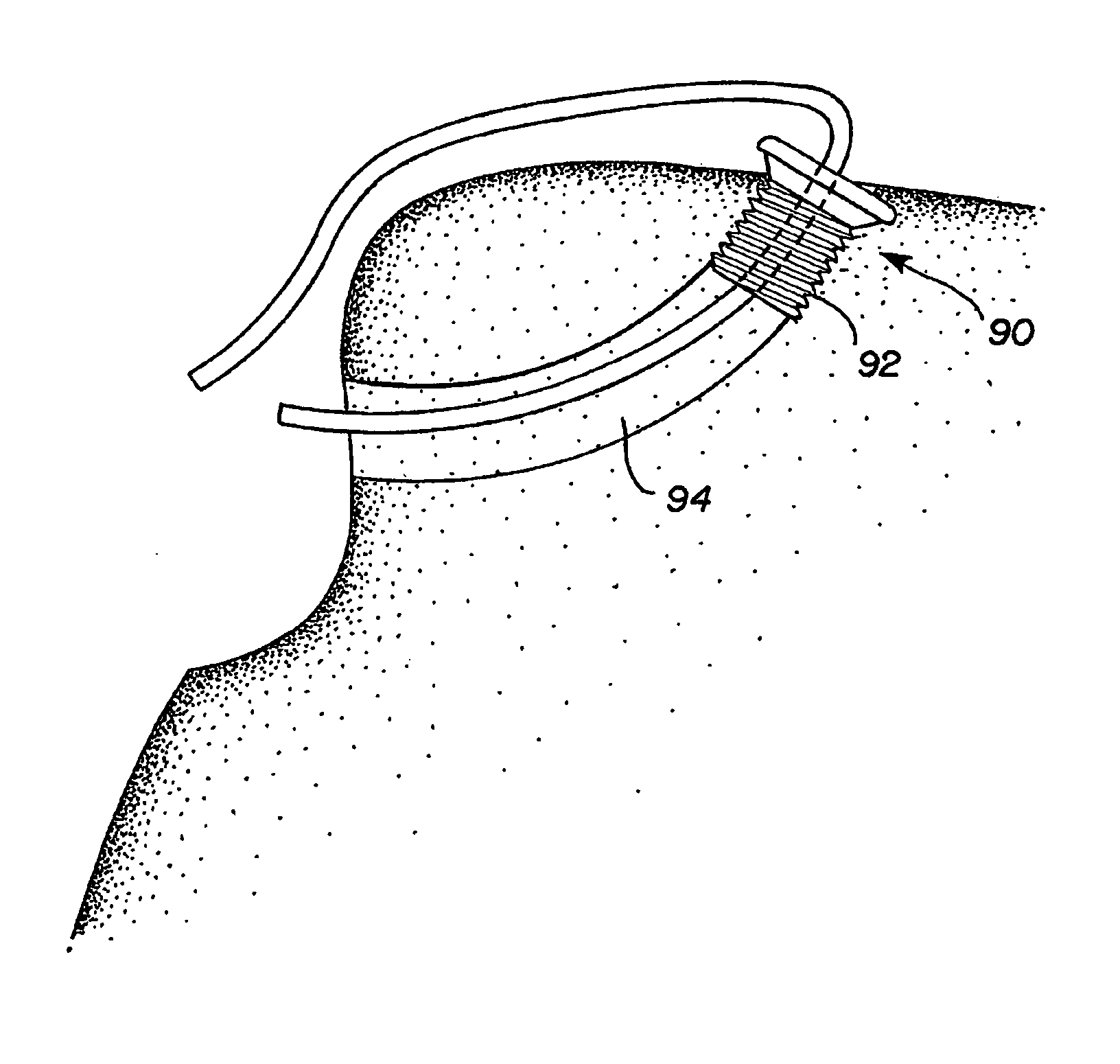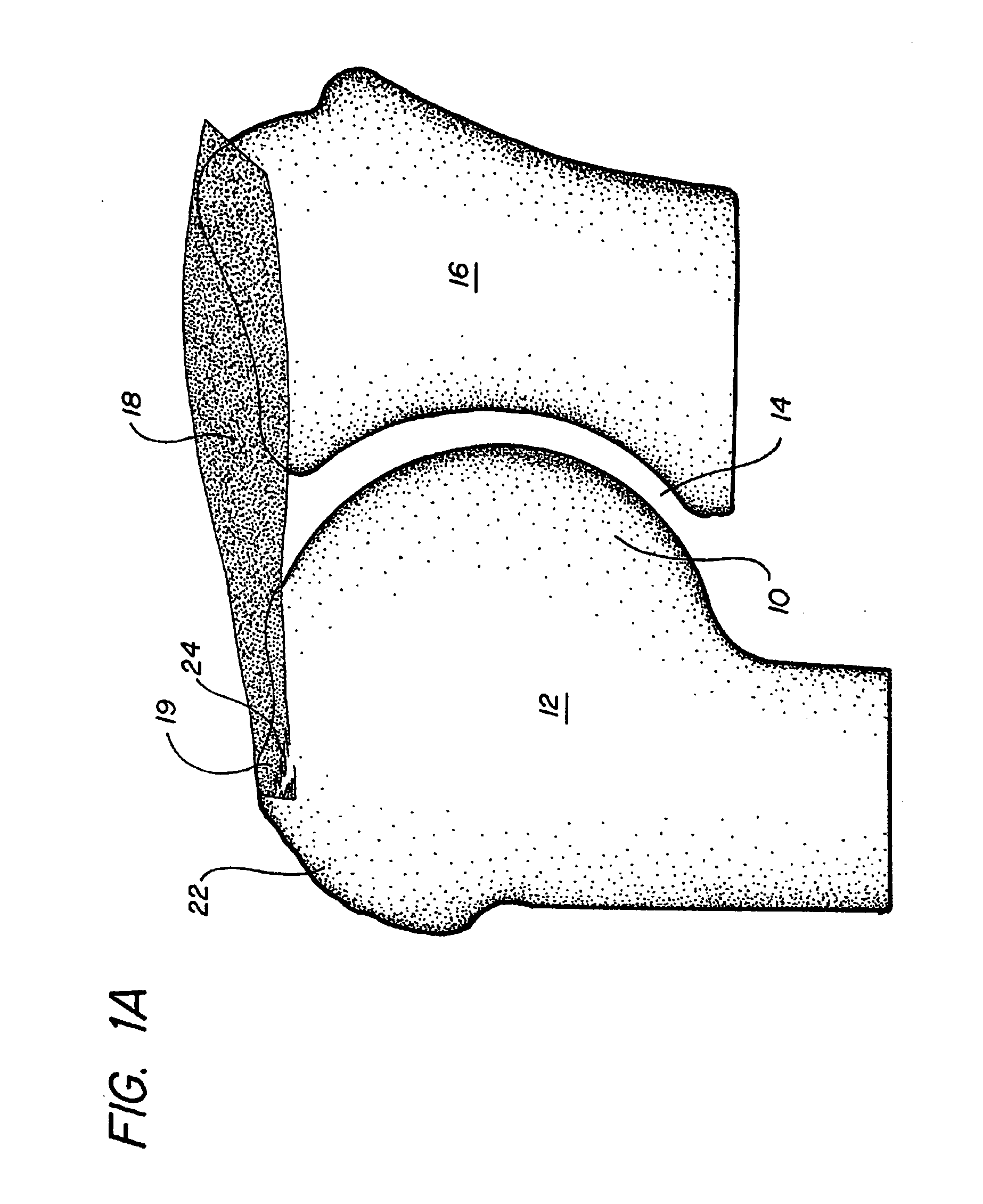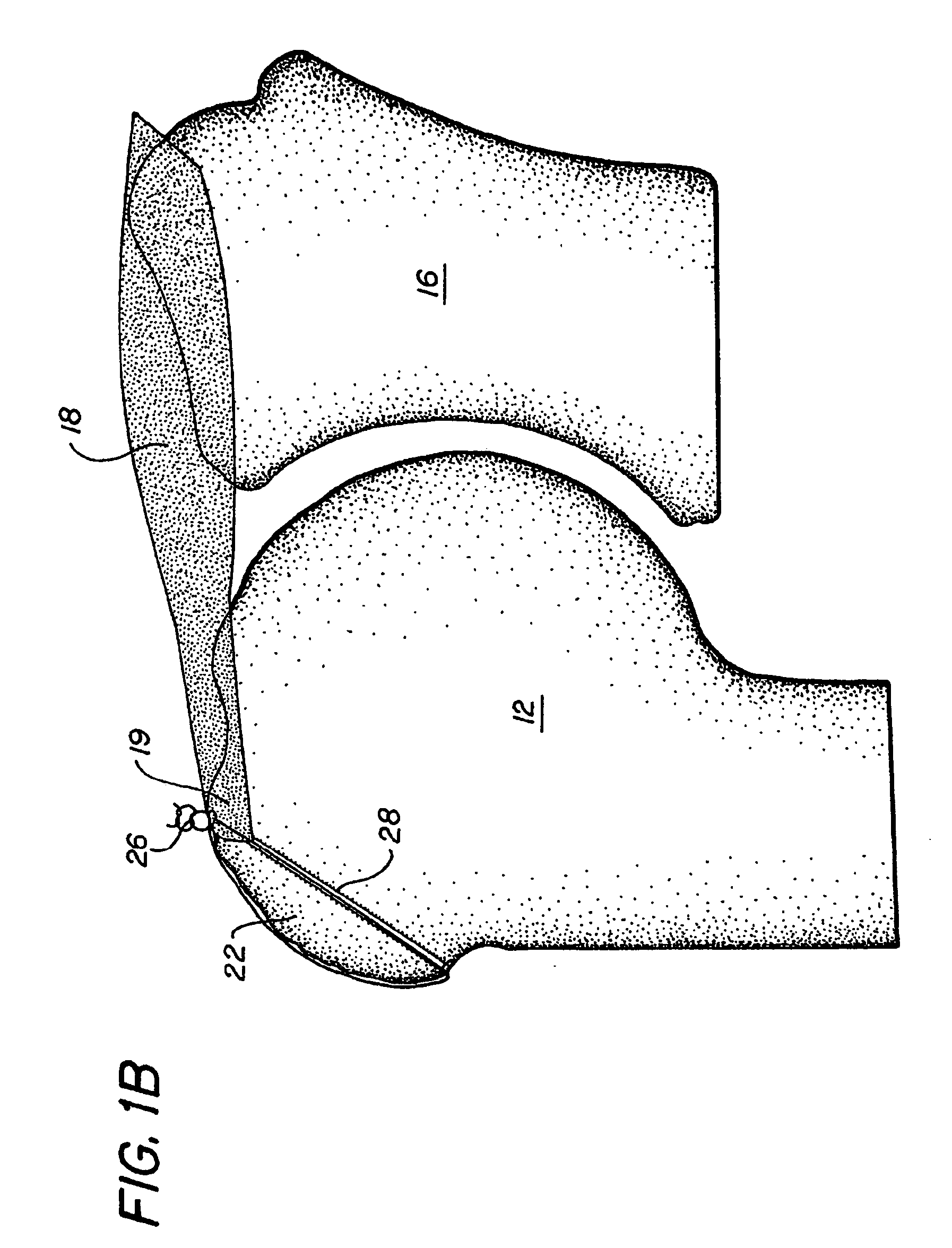Methods and apparatus for preventing migration of sutures through transosseous tunnels
- Summary
- Abstract
- Description
- Claims
- Application Information
AI Technical Summary
Benefits of technology
Problems solved by technology
Method used
Image
Examples
Embodiment Construction
[0027]FIG. 1A depicts a partially torn rotator cuff. In the illustration, the globular head 10 of humerus 12 rests in the glenoid cavity 14 formed by the scapula 16. The supraspinatus muscle 18 traverses the scapular spine (not shown) and converges into a tendon 19 (undifferentiated in the illustration), then end of which is normally fully inserted into a facet of the greater tuberosity 22. A partial tear rotator cuff tear results when a portion 24 of the tendon 19 detaches from the greater tuberosity 22, as shown in the illustration.
[0028]FIG. 1B illustrates the rotator cuff of FIG. 1A repaired in accord with the prior art suturing technique, in which the tendon 19 is resecured to the humerus by a suture 26 passed through a transosseous tunnel 28 bored obliquely through the greater tuberosity 22. A further understanding of the prior art suturing technique may be attained by reference to Gerber, et al, “Mechanical Strength of Repairs of the Rotator Cuff,” Journal of Bone and Joint ...
PUM
 Login to View More
Login to View More Abstract
Description
Claims
Application Information
 Login to View More
Login to View More - R&D
- Intellectual Property
- Life Sciences
- Materials
- Tech Scout
- Unparalleled Data Quality
- Higher Quality Content
- 60% Fewer Hallucinations
Browse by: Latest US Patents, China's latest patents, Technical Efficacy Thesaurus, Application Domain, Technology Topic, Popular Technical Reports.
© 2025 PatSnap. All rights reserved.Legal|Privacy policy|Modern Slavery Act Transparency Statement|Sitemap|About US| Contact US: help@patsnap.com



